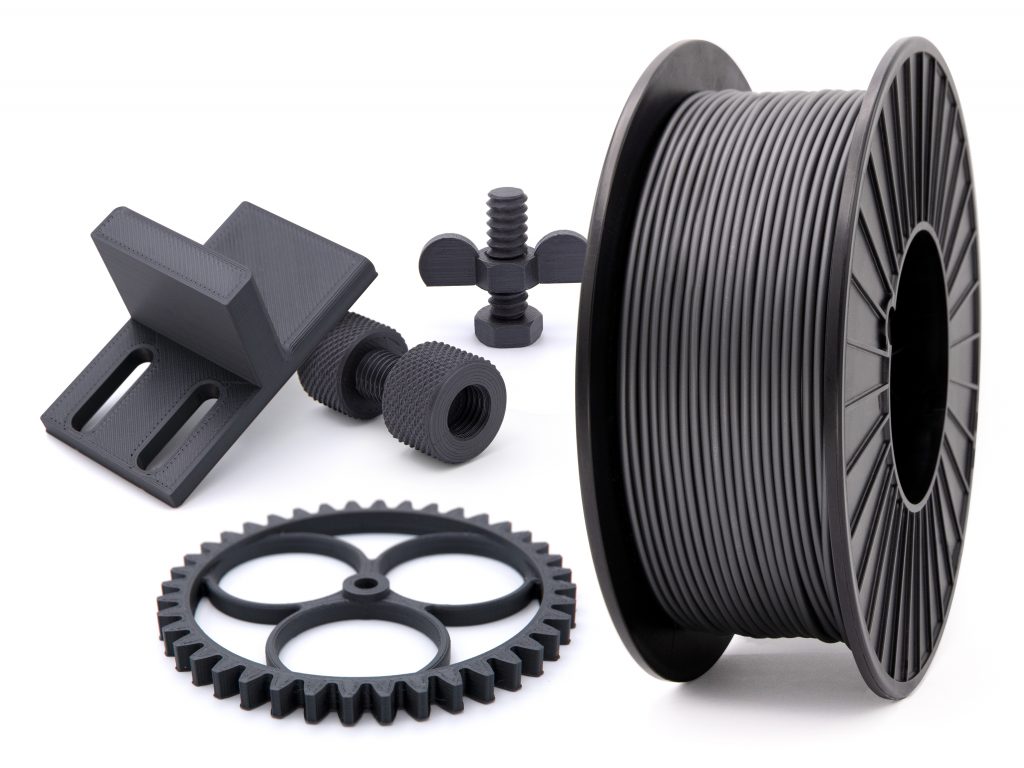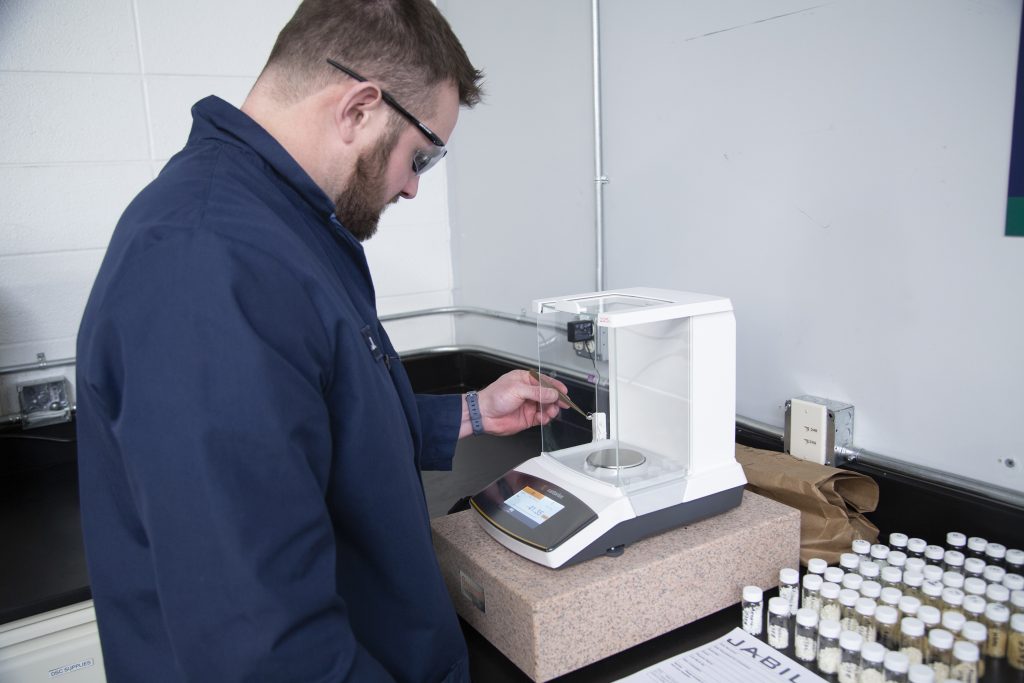Global manufacturing specialist Jabil’s Engineered Materials division has released a new high-strength patent-pending 3D printing material.
Jabil’s ultra-stiff PA 0600 filament is characterized by strong dimensional stability and resistance to wear, making it well-suited to demanding aerospace, automotive or industrial applications. As an added benefit, the polymer also features the functionality of POM materials without the inclusion of formaldehyde, allowing users to produce fatigue-free parts without the need for exposure to harmful fumes.

Introducing Jabil’s PA 0600
Developed by Jabil at its Minnesota-based Materials Innovation Center (MIC), PA 0600 is designed to be compatible with both conventional and additive manufacturing processes. The new filament features high levels of rigidity in addition to an extremely smooth surface, making it low-friction and potentially ideal for creating gears, bearings, fixtures or tooling.
The company’s innovative patent-pending formulation also provides users with the functionality associated with POMs like DuPont’s Delrin Acetal, but without the inclusion of formaldehyde. Given that the chemical is prone to emitting fumes when overheated, its absence within PA 0600 allows designers to 3D print abrasion-resistant parts with greater flexibility, speed and ultimately safety, than before.
Following its commercial release, PA 0600 has now been made available via the Ultimaker Marketplace, as well as on DigiKey. According to Ultimaker’s VP of Market Development, Materials and Strategic Partnerships Bas de Jong, the filament’s launch has provided clients with a credible substitute for Delrin, that offers “peace of mind” during printing.
“Jabil PA 0600 filament is an exciting, engineered material advancement, offering a viable Delrin alternative with the durability and strength needed for a wide range of AM applications,” commented de Jong. “Previous materials from Jabil that are already available in the Ultimaker Marketplace in Ultimaker Cura, offer users first-time right results and peace of mind, while printing on our 3D printers.”

Identifying material trends
Alongside the launch of its new filament, Jabil has revealed the results of its 3D Printing Technology Trends survey. Based on feedback from 302 industry decision-makers, working at firms generating a combined revenue of more than $500 million, the research is designed to identify the benefits and challenges of adopting AM.
Broadly, Jabil’s results show that an increasing number of manufacturers are using 3D printing to create fixtures and tooling, as well as prototyping and entering small batch production. Nearly 50% of respondents said that they were expecting to double their application of the technology in the next 3-5 years, while 90% currently use polymer-based AM, up from 74% reported in the survey two years ago.
In terms of drawbacks, more than 50% of those polled cited lengthy material R&D lead times as challenging, a significant increase on the 27% recorded two years earlier. In response to the survey data, Jabil has essentially reiterated its commitment to developing materials with application-specific properties, which better meet the needs of industrial users.
“We’re building upon Jabil’s legacy in materials science to improve existing polymers or create new ones at the molecular level,” said Matt Torosian, Additive Product Management Director at Jabil. “Our focus on innovation led to the discovery of our PA 0600 filament, which has a unique formulation with Acetal plastic attributes, but without potentially dangerous formaldehyde emissions.”
Jabil’s 3D printing portfolio
Operating in 30 countries, Jabil’s manufacturing services primarily revolve around design engineering, and supply chain logistics. In order to expedite its prototyping process and reduce tooling errors, the company integrated 3D printing into its workflow via its global AM network in 2019, comprising an initial 100 3D printers.
At the same time, Jabil established its MIC facility, which houses more than 20 open-source systems, and recently formed part of the R&D process behind the new PA 0600. Since then, the company has sought to work with industrial partners to broaden its 3D printing capacity, and joined Carbon’s Production Network with the aim of developing new healthcare applications for its DLP technology.
Jabil’s materials subsidiary has also worked with 3D printer manufacturer Titan Robotics, to advance the capabilities of large-format systems for industrial applications. Having already validated Jabil’s carbon fiber-reinforced nylon composite pellets, the companies now intend to formulate new composites for Titan’s Atlas platform.
To stay up to date with the latest 3D printing news, don’t forget to subscribe to the 3D Printing Industry newsletter or follow us on Twitter or liking our page on Facebook.
Are you looking for a job in the additive manufacturing industry? Visit 3D Printing Jobs for a selection of roles in the industry.
Featured image shows a spool of Jabil’s new PA 0600 filament alongside a set of 3D printed parts. Image via Jabil.


